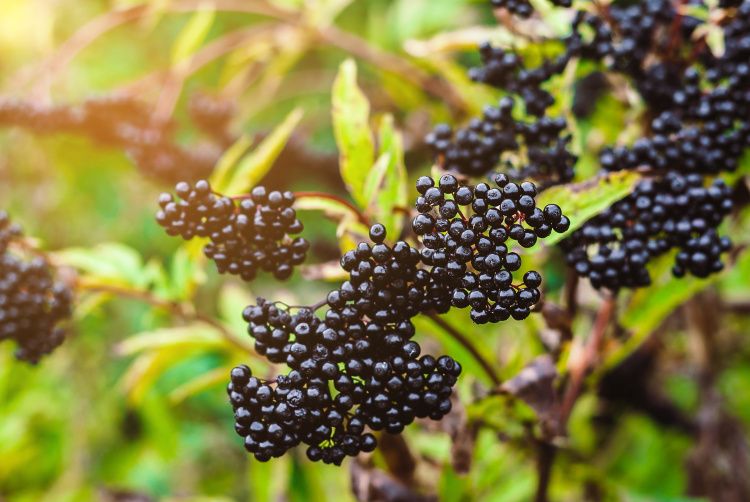BAPP publishes report on elderberry adulteration
The report from ABC-AHP-NCNPR Botanical Adulterants Prevention Program confirms that adulterated and mislabeled materials are being sold as elderberry.
Photo © stock.adobe.com/romankrykh

A new report published in the March issue of the American Botanical Council’s (ABC; Austin, TX) HerbalEGram newsletter details results from analytical laboratories on ingredients and products containing or claiming to contain elderberry. The report from ABC-AHP-NCNPR Botanical Adulterants Prevention Program (BAPP; Austin, TX) confirms that adulterated and mislabeled materials are being sold as elderberry. The report covers bulk powder, bulk extracts, and finished dietary supplements marketed as containing European elder (Sambucus nigra, syn. S. nigra subsp. nigra) or American elder (S. canadensis, syn. S. nigra subsp. canadensis) berry.
ABC founder and executive director Mark Blumenthal, who is also the founder and director of BAPP, said in a press release: “This is the first scientific publication that confirms what many scientific and botanical industry experts have suspected for a long time — that, unfortunately, like many other popular botanical ingredients used in some dietary supplements, elderberry is subject to adulteration and fraud by sellers who do not ensure the proper botanical identity and authenticity of their ingredients. Accordingly, companies seeking authentic elderberry ingredients for their products must use considerable caution and appropriate analytical methodology to ensure the proper identity of their ‘elderberry’ ingredient supplies. There are many responsible and reputable companies that perform the appropriate analytical due diligence on their elderberry ingredient supplies to confirm the identity of their ingredient and ensure the reliability of their elderberry products. However, the results of our paper strongly suggest that not all companies selling ‘elder berry’ products perform adequate quality control measures.”
To assess the quality and authenticity of commercial materials, BAPP asked elderberry ingredient suppliers, product manufacturers, and independent analytical laboratories that test elderberry ingredients and finished products to provide data from chemical or genetic assays evaluating elderberry authenticity. The results are summarized in a paper co-authored by 15 botanical science experts, led by Stefan Gafner, PhD, ABC chief science officer and BAPP technical director.
Analytical data were provided by the industry laboratories Artemis International, Gaia Herbs, Nature’s Way, and Naturex, and the independent analytical laboratories Alkemist Laboratories, DNA4 Technologies, Eurofins, and NSF International. Of the 532 samples analyzed, 58 (10.9%) failed identity specifications. The results show that black rice (Oryza sativa) extract, a relatively low-cost ingredient that contains some but not all of the anthocyanidin compounds found in elderberry, is a frequent adulterant.
The paper also gives a brief overview on elderberry taxonomy, medical use, chemistry, and the market situation in the United States. The publication was reviewed by 15 experts from academia, non-profit organizations, contract analytical laboratories, and the herbal dietary supplement industry in the United States, Canada, and France.
Prinova acquires Aplinova to further increase its footprint in Latin America
April 7th 2025Prinova has recently announced the acquisition of Brazilian ingredients distributor Aplinova, which is a provider of specialty ingredients for a range of market segments that include food, beverage, supplements, and personal care.










